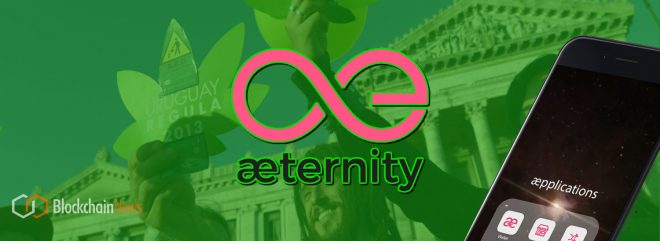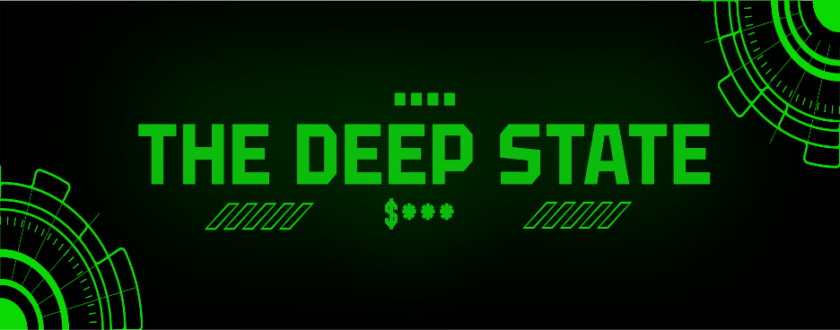Open-source blockchain for building decentralized applications æternity is creating a supply chain management platform for the cannabis trade south of the equator alongside Uruguay Can, one of South America’s leading cannabis production companies.
In December 2013, Uruguay became the first country in the world to completely legalize the production and sale of marijuana. With a population of only 3.4 million nestled between two neighbouring giants, Brazil and Argentina (with populations of 208 and 43 million respectively), Uruguay has been an innovator in both recreational and medical marijuana throughout the region.
For Uruguay Can CEO Eduardo Blasina, this partnership with æternity is a significant milestone for the industry.
“We are proud to be the first company in Uruguay that can guarantee the quality of our products in a transparent and verifiable way,” said Blasina.
“The ability to trace the source and the way cannabis is produced is beneficial for both the cannabis and pharmaceutical industry as well as its consumers and end users, who should feel more secure about the product that they are consuming,” added Pablo Coirolo. “This mechanism is ideal for improving the cannabis production process throughout the supply chain, certifying consumer safety while regulations are adhered to.”
æternity Americas CEO Pablo Coirolo explained that blockchain technology can provide security and confidence about the quality of medical and recreational cannabis.
“We want to be the first to offer a business-level solution in partnership with leading technology providers and cannabis producers, processors and distributors,” said Coirolo. “æternity technology is ideal for tracking the entire cannabis production process, from seed to full plant growth, throughout the entire supply chain, which ensures consumer safety while complying with regulations.”
æternity’s implementation allows the registration and tracking of cannabis strains from the seed to the final product, combining the technology of IOT (Internet of Things) and blockchain to enable the possibility to create decentralized applications.
The first phase of the implementation between Uruguay Can and æternity will begin in October and is expected to be completed in January 2020, with full implementation planned for the middle of next year.
æternity is an open-source public blockchain protocol that allows a platform for next-generation decentralized applications and high scalability. Its main components are written in the Erlang functional programming language, and its smart contracts are also functional. Unlike other blockchain platforms, the æternity protocol incorporates several essential technological features. æternity also presents SDK in Javascript, GO, Phyton, Java, as well as middleware and a development suite that optimizes the development of smart contracts.
Uruguay Can is a Uruguayan company based in Montevideo that combines experience in recreational, medicinal and hemp cannabis developments in already established projects with a consolidated agronomic team in the first country in the world to legalize the production, with the objective of exporting to all the world an increasingly broad portfolio of products.
- æternity Teams Up with Uruguay Can to Track Cannabis Production on the Blockchain – October 2, 2019
- Streamr Launches Global Pub/Sub Network For Machine Data – October 2, 2019
- SEC Orders Blockone to Pay $24 Million Fine for Unregistered ICO – October 2, 2019
- Aqilliz Rolls Out Blockchain Enterprise Product Lines for the Digital Marketing Industry – September 27, 2019
- Venezuela Central Bank Testing Shift to Cryptocurrencies to Pay State Oil Company Bills – September 27, 2019
- The University College London (UCL) Centre for Blockchain Technologies Announce Blockchain AI Hackathon – September 27, 2019
- The European Commission, INATBA, the EU Blockchain Observatory and Forum and Alastria join forces to organise Convergence – the Global Blockchain Congress – September 27, 2019
- Facebook 2020 Launch of Libra Cryptocurrency in Doubt – September 27, 2019
- PARSIQ Announces Availability on Algorand to Improve Blockchain Transparency – September 26, 2019
- Blockchain Mining Project Pi Network Nears 500,000 Mobile App Miners – Halving Point on Horizon – September 26, 2019
- Tatatu Launches “Giving Back Generation” Social Awareness Vodcast Starring Selena Gomez – September 26, 2019
- KPMG Releases Free Study on How Blockchain-Enabled Tokenization Will Transform Commerce – September 25, 2019
- University of Cambridge Delivers New Blockchain Model To Improve Global Supply Chains – September 25, 2019
- Easywallet: 25,000 French Points of Sale Terminals to Accept Cryptocurrencies – September 25, 2019
- Global Blockchain Market is Expected to Reach USD 169.5 Billion by 2025 – September 25, 2019
- Deutsche Bank Pilots Blockchain Technology To Provide Global Beneficial Ownership Transparency Solution – September 24, 2019
- Canadian Company Kik Drops Messenger, Restructuring Kin for Almighty Battle with US SEC – September 24, 2019
- Securitize Raises US$14M – Round Led by Santander InnoVentures, MUFG, and Nomura Holdings – September 24, 2019
- Proxeus Goes Live: Building on Blockchain Without Code – September 24, 2019
- Bank for International Settlements Proposes “Embedded Regulation” for Blockchain Markets – September 24, 2019
Also published on Medium.






